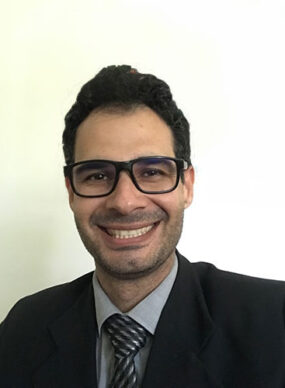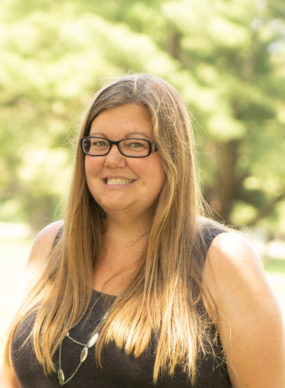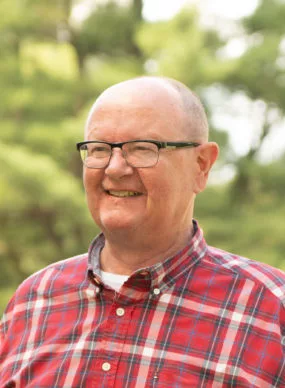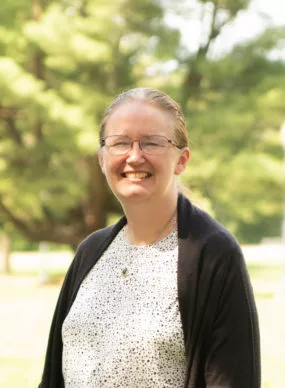BIOL1500 Biology I with Lab - 4 s.h.
A study of the diversity of life (prokaryotes, protists, fungi, plants, and animals), focusing on the key characteristics of life, the evolutionary processes that shape life, and the ecological interactions among organisms and their physical environments. Includes a lab. Additional fee required.
BIOL1520 Biology II with Lab - 4 s.h.
A comparative study of form and function across organisms, focusing on the various structures and strategies used by plants and animals to fulfill basic life needs, levels of organization (cells, tissues, organs, and organ systems), and the chemical reactions of metabolism. Includes a lab. Additional fee required.
BIOL2100 Cell Biology and Genetics with Lab - 4 s.h.
A study of the various patterns and mechanisms of heredity, changes in the genetic material and the consequences of these genetic changes. The course will also give an introduction to cellular structures, macromolecules, and processes, including DNA replication, transcription, translation and cellular signaling. Additional fee required. Prerequisite: CHEM1330, CHEM3410, or (CHEM1410 and CHEM1450). (C or better strongly recommended).
BIOL2360 Microbiology with Lab - 4 s.h.
Students will learn about immunology, bacteriology, mycology, and virology. Emphasis will be placed on the cellular mechanism and role of microbial pathogens (bacteria) and agents (viruses, prions) affecting human health and how they are treated. Additional fee required. Prerequisite: BIOL2100 or instructor's consent.
BIOL2430 Animal Biology with Lab - 4 s.h.
A survey of the major groups in the animal kingdom, including sponges, cnidarians, molluscs, arthropods, echinoderms, vertebrates, etc. Within each group, taxonomy, internal and external form, reproduction, nutrition, and habitat will be considered. Additional fee required. Prerequisite: BIOL1500, BIOL1520 or instructor's consent.
+This course is only offered every other year.
BIOL2440 Plant Biology with Lab - 4 s.h.
A survey of the major groups in the plant kingdom, including nonvascular plants, ferns and fern allies, gymnosperms, and angiosperms. Within each group, taxonomy, internal and external form, and reproductive life cycles will be considered. In addition, plant growth and metabolism, algae, and fungi will be covered. Additional fee required. Prerequisite: BIOL1500, BIOL1520 or instructor's consent.
+This course is only offered every other year.
BIOL3310 Molecular Genetics with Lab - 4 s.h.
A study of cellular processes involved in the Central Dogma: DNA replication, transcription and translation. The study will include how gene expression is regulated at various levels, such as at the transcription level and post-translational level. Lastly students will study and perform different molecular genetic techniques used in laboratories today: pipetting, DNA gel electrophoresis, PCR and DNA cloning. Additional fee required. Prerequisite: BIOL2100 (C or better strongly recommended). +This course is only offered every other year.
BIOL3400 Ecology and Conservation Biology with Lab - 4 s.h.
A study of how organisms interact with one another and with their physical environments at the physiological, population, community, and ecosystem levels. Case studies will use ecological concepts to develop conservation strategies for species, habitats, and ecosystems. Includes a lab. Additional fee required. EL06 Science - World Citizenship, ELO6 Science - Sustainability
+This course is only offered every other year.
BIOL3420 Human Anatomy with Lab - 4 s.h.
A study of gross human anatomy utilizing charts, three dimensional models, computer simulations, and dissection of mammalian animals. The course will discuss regional and surface anatomy to establish the relationships of the various organ systems of the body. Additional fee required. Prerequisites: BIOL2100 or PHED1500.
BIOL3440 Human Physiology with Lab - 4 s.h.
A systems oriented study of the function of the human body on the cellular, tissue, organ, and organ-system levels with an emphasis on medical physiology. Laboratory includes computer simulations and use of Biopac equipment. Additional fee required. Prerequisites: BIOL3420 (grade of C or better strongly recommended) and one semester of chemistry or BIOL2100.
BIOL4111 Capstone Research I (also CHEM4111) - 1 s.h.
Course covers the basic elements of scientific research (e.g., performing literature searches, developing research questions, designing experiments, and giving scientific presentations). The student will develop a scientific question and then write a research proposal in cooperation with a faculty mentor to answer that question. Prerequisite: BIOL2100, CHEM3410/3411, and senior standing or consent of instructor.
BIOL4120 Capstone Research II (also CHEM4120) - 1-2 s.h.
The student conducts scientific research based on the research proposal developed in BIOL/CHEM4111. Prerequisite: BIOL/CHEM4111.
BIOL4130 Capstone Research III (also CHEM4130) - 1-2 s.h.
The student completes the research that was started in BIOL/CHEM4120. Highlights of the research will be presented orally and through a poster presentation. A final thesis manuscript is required for submission. Prerequisite: BIOL/CHEM4120.
BIOL4310 Biochemistry with Lab (also CHEM4310) - 4 s.h.
An introduction to biologically important molecules and metabolic pathways and the laboratory techniques used to study and characterize them. Additional fee required. Prerequisite: CHEM3420/3421 and BIOL2100. +This course is only offered every other year.
BIOL4400 Immunology - 3 s.h.
Investigation of the innate and adaptive immune system, including inflammation, B and T cell development and function, immunization and its role in human health. Prerequisites: BIOL2100 and BIOL2360 (grade of C or better strongly recommended). +This course is only offered every other year.
BIOL4460 Cell and Cancer Biology - 3 s.h.
Students will investigate the cellular mechanisms of cancer and then will learn about a few specific cancers. Includes an in-depth study of the multistage model of carcinogenesis, genes involved in cancer, activation of cancer genes, signal transduction pathways that promote carcinogenesis, the mechanism of metastasis, apoptosis, how cancer treatments work, and the new potential cancer treatments. Prerequisite: BIOL2100 (grade of C or better strongly recommended).
+This course is only offered every other year.
CHEM1410 General Chemistry I Workshop with Lab - 4 s.h.
General Chemistry I Workshop is appropriate for any student interested in developing a strong background in chemistry. It is intended to be the first university chemistry course for science majors. As such, it will be fairly rigorous and will draw upon previous experience in mathematics and science. Major areas to be covered include atomic and molecular structures, chemical bonding, stoichiometric relationships, and chemical reactions. Laboratory activities and experiments are closely related to concepts introduced in class discussions and will allow students to develop their laboratory skills. Good safety practices and experimental record keeping will be stressed. Students are expected to actively participate in class activities and discussions in addition to homework assignments, individual/group study and preparation for exams. Course is intended for biology, chemistry, and some allied health majors. Additional fee required. Fulfills liberal learning science course. Prerequisites: MATH1280 and CHEM1310 or one year of high school chemistry. EL06 Science, GE3D Liberal Learning-Natural Sciences.
CHEM1420 General Chemistry II Workshop with Lab - 4 s.h.
General Chemistry II Workshop is appropriate for any student interested in developing a strong background in chemistry. It is the continuation of CHEM1430. Students will gain a deeper understanding of basic chemical principles and will emphasize problem solving. It is fairly rigorous and will draw upon previous chemistry experience as well as mathematics and other science fields. Major areas to be covered include physical properties of solids, liquids, and solutions, intermolecular forces, energy changes in chemical reactions, thermodynamics, gas-phase equilibrium, and aqueous acid/base equilibrium. Laboratory activities and experiments are closely related to concepts introduced in class discussions and will allow students to develop their laboratory skills. Good safety practices and experimental record keeping will be stressed. Students are expected to actively participate in class activities and discussions in addition to homework assignments, individual/group study and preparation for exams. Prerequisite: CHEM1410.
CHEM1450 Introduction to Organic and Biochemistry (1-0) - 1 s.h.
An introduction to the principles of organic and biochemistry, including a study of chemical reactions (condensation and hydrolysis reactions), solution chemistry (hypotonic/hypertonic, isotonic solution), functional groups, organic molecule representation, introduction of biological molecules (proteins, lipids, carbohydrates and nucleic acids). This course is intended for students who need to help fulfill the chemistry requirement for fundamentals of cell biology and genetics course (BIOL2100). Pre or Corequisite: CHEM1410 and instructor consent.
CHEM3410 Organic Chemistry I (3-0) - 3 s.h.
An in-depth study of modern organic chemistry including nomenclature, structure and bonding, synthesis, reaction mechanisms, and important functional groups and families of both aliphatic and aromatic compounds. Prerequisite: CHEM1420. Corequisite: CHEM3411 Organic Chemistry I Lab.
CHEM3411 Organic Chemistry I Lab (0-3) - 1 s.h.
Additional fee required. Corequisite: CHEM3410 Organic Chemistry I.
CHEM3420 Organic Chemistry II (3-0) - 3 s.h.
A continuation of CHEM3410 which is a prerequisite. With a grade of C or better is strongly recommended. Corequisite: CHEM3421 Organic Chemistry II Lab.
CHEM3421 Organic Chemistry II Lab (0-3) - 1 s.h.
Additional fee required. Corequisite: CHEM3420 Organic Chemistry II.
CHEM4111 Capstone Research I (also BIOL4111) - 1 s.h.
Course covers the basic elements of scientific research (e.g., performing literature searches, developing research questions, designing experiments, and giving scientific presentations). The student will develop a scientific question and then write a research proposal in cooperation with a faculty mentor to answer that question. Prerequisite: BIOL2100, CHEM3410/3411, and senior standing or consent of instructor.
CHEM4120 Capstone Research II (also BIOL4120) - 1-2 s.h.
The student conducts scientific research based on the research proposal developed in BIOL/CHEM4111. Prerequisite: BIOL/CHEM4110.
CHEM4130 Capstone Research III (also BIOL4130) - 1-2 s.h.
The student completes the research that was started in BIOL/CHEM4120. Highlights of the research will be presented orally and through a poster presentation. A final thesis manuscript is required for submission. Prerequisite: BIOL/CHEM4120.
CHEM4310 Biochemistry with Lab (also BIOL4310) - 4 s.h.
An introduction to biologically important molecules and metabolic pathways and the laboratory techniques used to study and characterize them. Additional fee required. Prerequisite: CHEM3420/3421 and BIOL2100. +This course is only offered every other year.
MATH1280 College Algebra - 3 s.h.
Solutions of polynomial, rational and radical equations, systems of equations, matrices, sequences, series, functions, exponentials.. ELO6 Math, GE2B Foundational Skills-Mathematics/Quantitative.
MATH1370 Statistics for Sciences - 3 s.h.
Data analysis and measures of central tendency, dispersion, and correlation. Introduction to probability. Estimation and hypothesis testing. Bivariate regression. ANOVA. Introduction to nonparametric techniques. ELO6 Math, GE2B Foundational Skills-Mathematics/Quantitative.
MATH1500 Applied Calculus - 3 s.h.
An introduction to differential and integral calculus. Topics include limits, continuity, differentiation and integration techniques, and applications. ELO6 Math, GE2B Foundational Skills-Mathematics/Quantitative.
MATH1510 Calculus I - 4 s.h.
Limits, continuity, differentiation, and applications including exponential, logarithmic, trigonometric, and inverse functions. Mean value theorem, curve sketching, Riemann sums, and the fundamental theorem of calculus. Prerequisite: 2 years high school algebra. ELO6 Math, GE2B Foundational Skills-Mathematics/Quantitative.
PHYS1410 Elements of Physics I with Lab - 4 s.h.
An elementary physics course emphasizing the fundamental concepts associated with the physical universe. Topics include Newtonian mechanics, fluids, heat thermodynamics, wave motion, and sound. Designed to meet the needs of biology majors and students preparing for the medical profession and related fields. Prerequisites: Two years high school algebra and one year geometry; plane trigonometry recommended.
PHYS1420 Elements of Physics II with Lab - 4 s.h.
A continuation of PHYS1410. Topics included are electricity, magnetism, electromagnetic waves, light, relativity, quantum mechanics, and nuclear physics. Prerequisite: PHYS1410.

